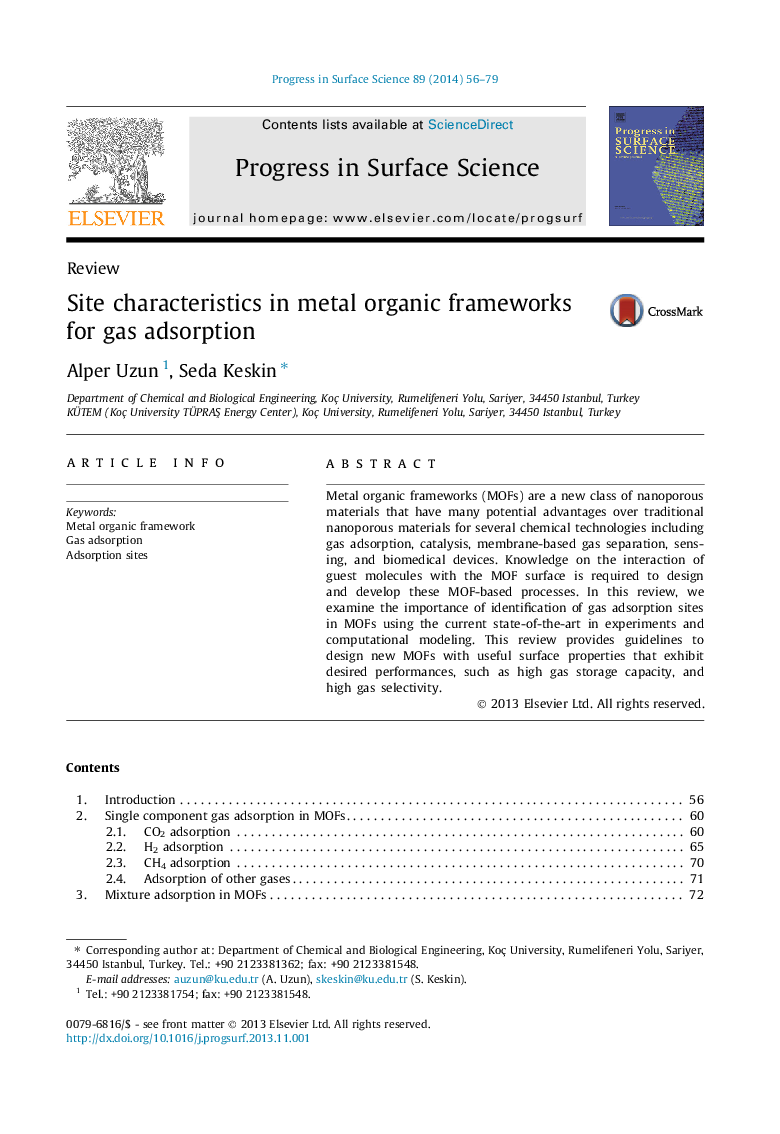| Article ID | Journal | Published Year | Pages | File Type |
|---|---|---|---|---|
| 5419995 | Progress in Surface Science | 2014 | 24 Pages |
Abstract
Metal organic frameworks (MOFs) are a new class of nanoporous materials that have many potential advantages over traditional nanoporous materials for several chemical technologies including gas adsorption, catalysis, membrane-based gas separation, sensing, and biomedical devices. Knowledge on the interaction of guest molecules with the MOF surface is required to design and develop these MOF-based processes. In this review, we examine the importance of identification of gas adsorption sites in MOFs using the current state-of-the-art in experiments and computational modeling. This review provides guidelines to design new MOFs with useful surface properties that exhibit desired performances, such as high gas storage capacity, and high gas selectivity.
Related Topics
Physical Sciences and Engineering
Chemistry
Physical and Theoretical Chemistry
Authors
Alper Uzun, Seda Keskin,
